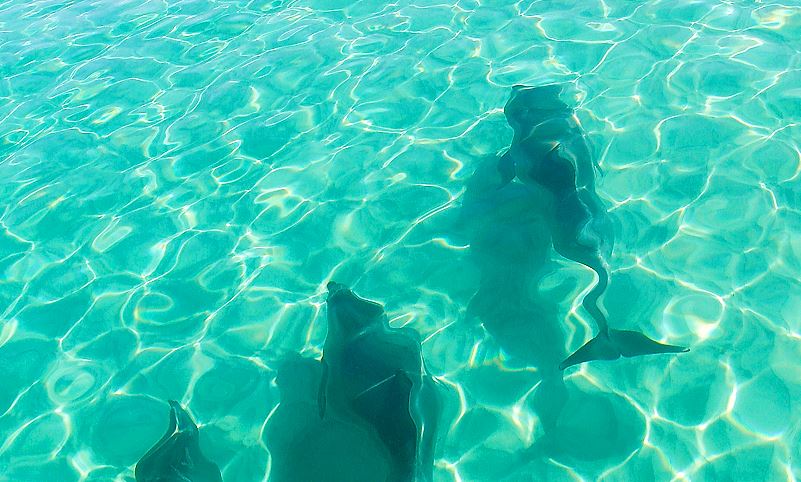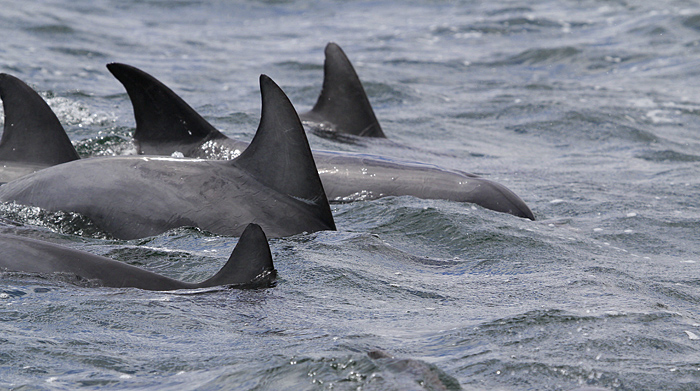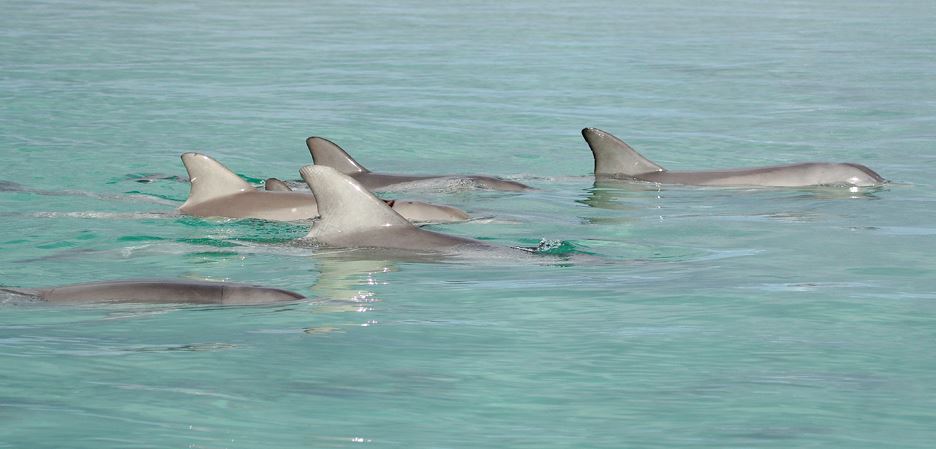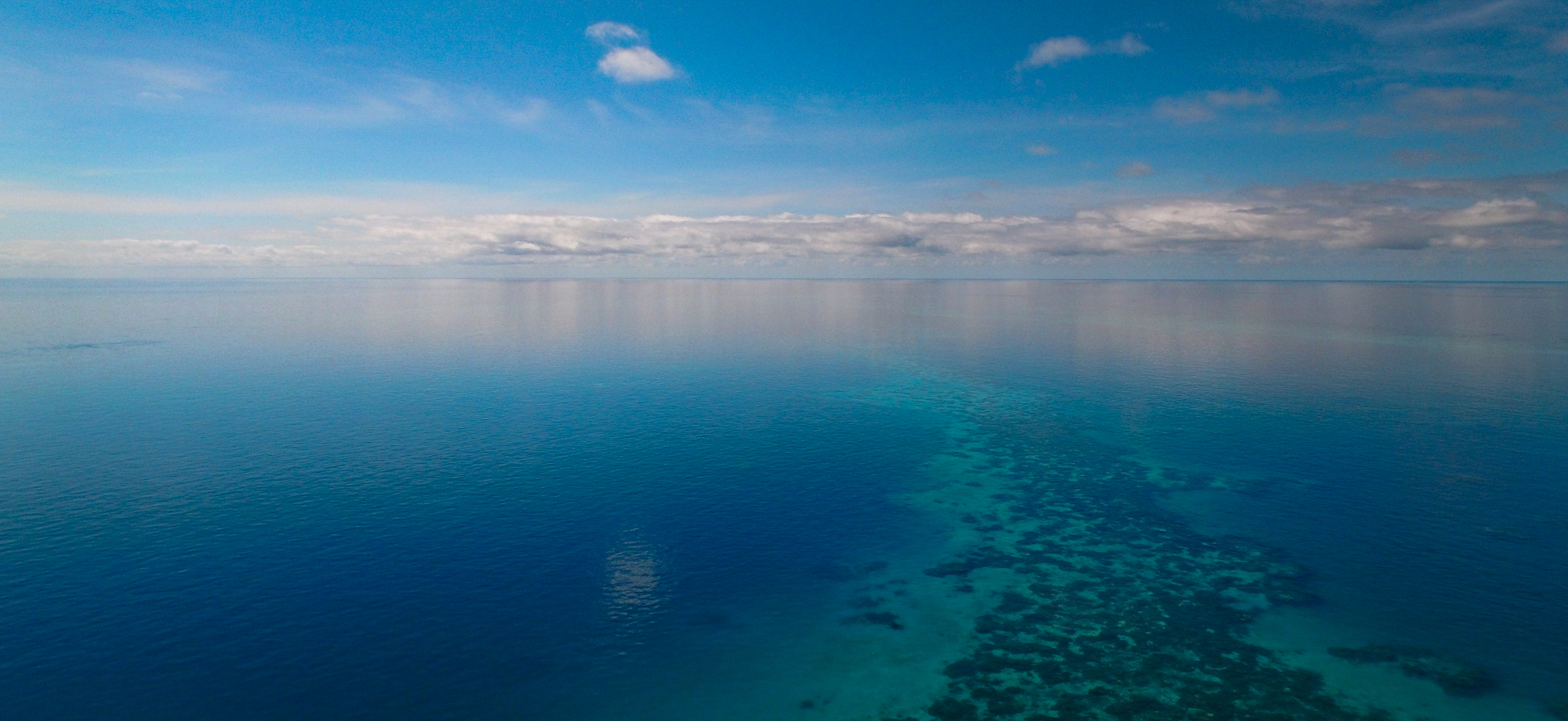
When it comes to wooing the ‘ladies’, it turns out male bottlenose dolphins seem to employ similar tactics to some human groups.
Flinders field work on the dolphins of southern Australia found they form strong bonds with other male relatives in their social circle to improve their success rate when breeding with a small number of available females.
has analysed the behaviour of 12 dolphin social groups in South Australia’s Coffin Bay region and shows males which team up in groups of two to five to form beneficial alliances may have more sexual success.
The collaboration improves the bottlenose dolphins’ chances of finding and breeding with females in a competitive environment, ensures they stay fit, and leads to stronger family bonds over time.
Led by Dr Fernando Diaz-Aguirre at the Molecular Ecology Lab and Cetacean Ecology, Behaviour and Evolution Lab at Flinders University, the study examined the social and genetic structure of Southern Australian dolphins dealing with population density, an unfavourable sex ratio, and their own behavioural characteristics.
“Our research shows males form tight groups likely to increase their chances at mating with limited numbers of females, and at the same time they can defend females and prevent other male groups from mating with them,” says Dr Diaz-Aguirre.

“The study highlights which geographic and demographic factors directly influence how male dolphins go about increasing their success rate with females.”
Male lions, chimpanzees and horses are known to form bachelor groups in the animal kingdom, but it’s even more important for dolphins because females only give birth to a single calf every two to five years.
Previous research has shown other dolphin’s types form similar relationships, but this study analysed why bonds are based on blood relations in the Coffin Bay region.
“The results corroborate predictions that a high density of dolphins living in an environment which presents unfavourable sex ratios are likely to result in the formation of male social groups”, states Associate Professor Luciana Möller, senior author of the study.
“In addition, the groups clearly tend to favour relationships based on blood relations. So it’s very similar to a group of humans, as we obviously socialise more with our relatives, such as brothers or cousins due to family relationships and because that’s who we feel more comfortable with”, says Dr Diaz-Aguirre.
Photo-identification data and biopsy samples were collected in Coffin Bay from 2013 to 2015 through boat-based surveys.
Previous studies have found that male dolphins who form close alliances breed more successfully in similar circumstances.
The study, ‘‘ (December 2018) by Fernando Diaz-Aguirre, Guido J. Parra, Cecilia Passadore and Luciana Möller, has been published in Behavioral Ecology and Sociobiology (Springer).







